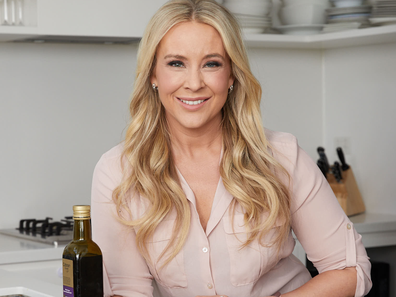You know the feeling: you sit down after dinner and even though you’re not hungry, you can’t stop thinking about food. Something sweet? Or crunchy? Or salty?
Food cravings are wanting something so desperately that it’s literally all you can think about, often ending with an entire block of chocolate or a demolished tub of ice cream in one sitting.
There’s nothing wrong with succumbing to an occasional food craving, but when we regularly feel like our cravings are out of control, or even keeping us from reaching a weight or health-related goal, it may be time to act.
There is no simple explanation as to why we may experience a food craving. A craving for a specific food or flavor may stem from a physiological drive to seek calories or nutrients.
READ MORE: Nutritionist reveals pros and cons of popular diets
It can be behaviorally driven, with the brain programmed over time to seek out certain tastes or flavors. It can be hormonal, which can be the case when you have your period or when you are pregnant.
Or even a craving can be triggered after watching someone else eat or, in the case of food ads, seeing a certain food.
The first step in taking control of distracting cravings is to consider what’s driving them.
Is it real hunger? Or rather the need for something sweet? Have you eaten enough or could you be hungry? Or is it more likely a bad habit? Once you have an idea of why you might be craving, you’ll be in a better position to take control.
Is your craving a bad habit?
If you’ve eaten enough and the craving is likely to be habitual, the best thing you can do to break a habit is to change your routine or environment.
For example, if your routine is to sit down every night after dinner and eat a sweet, your body and brain will expect it every day at the same time. Short-circuiting the habit by changing behaviors around cravings has been shown to be powerful in reducing cravings over time.
The first step in taking control of distracting cravings is to consider what’s driving them.
For example, going for a walk after dinner or calling a friend when you feel like eating chocolate instead of struggling psychologically on your own.
Another simple strategy is to never feed a craving more of the same type of food, as it is likely to excite your brain and you will continue to eat much more than you need. The foods we most commonly crave: ice cream, chocolates, cakes, and chips all have a rich taste and mouthfeel along with a particularly strong taste, whether sweet or salty.
READ MORE: What is the healthiest bread, according to a dietician

Behavioral research has repeatedly shown that the more intense the flavors we are exposed to, the more we can eat, hence our explanation for finishing an entire bag of chips or a package of cookies in one sitting.
Instead, try to limit yourself to a small amount of the food you crave before changing the taste in your mouth entirely, whether it’s through a cup of green tea, ice water with a slice of lemon, or plain mints and gum. sugar. And of course brushing your teeth is another easy management strategy.
Is your craving for sugar?
Sweet food cravings specifically can suggest a number of nutritional issues. It may be a sign that you haven’t eaten enough carbs, especially in the morning, which may be why you crave sweet foods in the afternoon.
The simple solution to control them is to make sure that both breakfast and lunch contain 20 to 30 g or 1 or 2 servings of high-carbohydrate foods, such as a slice of whole grain toast, a piece of fruit, or ½ cup of sweet potatoes or legumes. . .

On the other hand, if you’re eating enough and still experience extreme sugar cravings, it may be a sign that your glucose and insulin levels aren’t being well-regulated. If you have a significant amount of abdominal weight and/or have a family history of type 2 diabetes, it’s worth talking to your doctor about your glucose and insulin levels.
READ MORE: Dietician Susie Burrell reveals her top five low-sugar afternoon snacks
Is your craving legitimate?
If the craving is a bit random, especially for salty foods or something specific like meat, it may be worth getting a blood test to help identify if a nutrient deficiency it may be driving your desire for that specific food.
Unusual food cravings have long been associated with nutritional deficiencies, with cravings for ice or even chocolate linked to low levels of magnesium and iron, and as such are worth formal investigation.
Author susie burrell is a prominent Australian dietitian and nutritionist, founder of shape meco-host of The Nutrition Couch podcast and prominent media spokesperson, with regular appearances in print and television commenting on all areas of diet, weight loss and nutrition.
For a daily dose of 9Honey, Subscribe to our newsletter here
Your favorite muesli bars sorted by sugar

